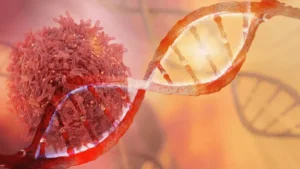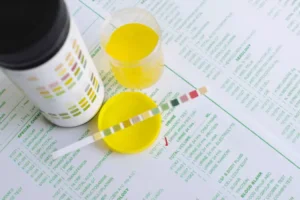
Alcohol consumption often leads to poor nutrition and vitamin deficiencies, including vitamin K deficiency. A lack of this vitamin can impair the body’s ability to form clots effectively, increasing the risk of bruising. These conditions highlight how chronic alcohol use doesn’t just alcohol and bruising affect immediate reactions but also long-term health outcomes that could lead to increased susceptibility to bruises. Heavy drinking often leads to poor nutrition and vitamin deficiencies, particularly of vitamin K, which is essential for proper blood coagulation.
Should I see a doctor for alcohol-related bruising?
- Staying hydrated is vital for overall health but becomes increasingly important if you consume alcohol regularly.
- The liver plays a crucial role in producing proteins that help with blood clotting.
- Because alcoholism is a chronic disease and alcohol relapse is common, persistence is a necessity — but success is achievable.
- As alcohol dries the skin, our natural defence against pathogens, this can also lead to repeated skin infections.
Ruptured capillaries happen on a micro level throughout the day and the body almost instantaneously reabsorbs the blood. But if a bang on your thigh, as an example, is big enough, the process will happen slowly enough that you’ll notice. Corticosteroids, used for allergies, eczema, and asthma, can cause you to bruise more easily. But, sometimes you spot a bruise and wonder what causes you to bruise easily. Yes, alcohol can interact with certain medications, amplifying their side effects and potentially increasing the risk of bruising. Blood thinners such as warfarin, heparin, and aspirin can cause you to bleed and get bruises more often.
Can alcohol worsen existing bruises?
Alcohol affects this process by reducing platelet aggregation and altering their function. This is called ‘alcohol flush reaction’ and it happens when your body is unable to fully digest all the alcohol you’ve consumed. This means that the toxins in alcohol, including acetaldehyde, can build up in your body. In the long-term, these vessels can over-dilate, leading to spider veins on the skin. Alcohol’s effects on skin can be quite visible not long after drinking.

Long-Term Impact of Alcohol on Bruising and Bleeding

A lack of these vitamins can weaken blood vessel integrity and hinder the body’s ability to heal, leading to increased bruising. Platelets are small cells in the blood that help form clots by sticking together at injury sites. Alcohol can cause platelet dysfunction, making it harder for these cells to aggregate effectively when needed.
Understanding the connection between alcohol consumption and bruising requires both physical awareness as well as psychological responsibility towards one’s habits. When combined with regular alcohol consumption—which already impacts clotting mechanisms—the risk of easy bruising escalates significantly for older adults. It’s crucial for this demographic to monitor their drinking habits closely while ensuring they maintain a healthy lifestyle through proper nutrition and hydration. Chronic alcohol use can lead to inflammation and damage to the vascular system, making blood vessels more susceptible to rupture. This combination of factors explains why some people notice an increase in bruising after drinking.
Conclusion – Alcoholism And Easy Bruising
- An alcohol use disorder is a legitimate medical condition that causes lasting changes in the brain.
- If you experience frequent or severe bruising after consuming alcohol, it’s advisable to consult a healthcare professional.
- After several days, your body will typically reabsorb the blood that initially caused the discoloration.
- It’s crucial for this demographic to monitor their drinking habits closely while ensuring they maintain a healthy lifestyle through proper nutrition and hydration.
- It plays a significant role in detoxifying harmful substances and producing proteins necessary for clotting blood.
These include over-the-counter medicines such as non-steroidal anti-inflammatory drugs (like ibuprofen), aspirin, and blood thinners. No, bruises can occur due to various reasons such as physical trauma or the use of certain medications, in addition to alcohol consumption. Alcohol hepatitis can lead to liver failure and can also gradually damage the liver and lead to cirrhosis. Cirrhosis is when normal liver tissue is replaced by scar tissue, which causes the liver to lose its ability to function well. Alcohol can also lead to excessive sweating – known as alcohol sweats or night sweats.
Improving nutrition is essential for recovery from alcoholism and reducing symptoms like easy bruising:
Most people who drink heavily will progress through the stages of liver damage described above over time. But you may also bleed a little more if you cut yourself while drinking. Bruising comes into play when you bump a part of your body on a hard surface, causing blood vessels to rupture. While you’re drinking, the blood flow around the surface of your skin will increase; even minor bumps can cause blood vessels to burst, forming a drug addiction treatment bruise.
- You may avoid these nasty markings by adopting the proper lifestyle practices and following the tips mentioned in the blog.
- In the article below, we will look at several reasons why you are bruising easily.
Bruising easily can be a frustrating and sometimes concerning issue. When small bumps or minor pressure lead to noticeable bruises, it may indicate underlying nutritional deficiencies or health conditions. Bruises form when tiny blood vessels under the skin break, causing blood to pool and create discoloration. While occasional bruising is normal, frequent or excessive bruising may suggest a lack of essential vitamins that support blood vessel strength and healing. Women who experience heavy periods may be more susceptible to bruising easily from even minor injuries. This is usually due to lower iron levels caused by significant loss of blood.
Why do people with alcoholism bruise easily?

Understanding this relationship is crucial for anyone who enjoys a drink or is concerned about their health. Alcohol consumption can lead to bruising due to its effects on blood clotting and liver function. Jaundice can be a physical sign of liver problems, where the skin takes on a yellowish-brown tone due to high levels of bilirubin in the body. While many things could lead to you developing jaundice, a common cause is high levels of alcohol consumption. Medical help should be sought if there is excessive or unexplained bruising, especially in those with a history of heavy drinking. Signs warranting attention include large painful bruises or persistent bruising without clear cause.
Health Products
Those who bruise easily develop lesions when there is no known cause. They have experienced no trauma, and the bruises they have are large and appear frequently. According to BMJ Best Practice, surveys suggest that somewhere between 12 percent and 55 percent of people have some form of easy bruising. If a person continues to drink despite health-related problems, bruises after drinking may be a consequence that arises from alcohol misuse. An alcohol use disorder is a legitimate medical condition that causes lasting changes in the brain.
